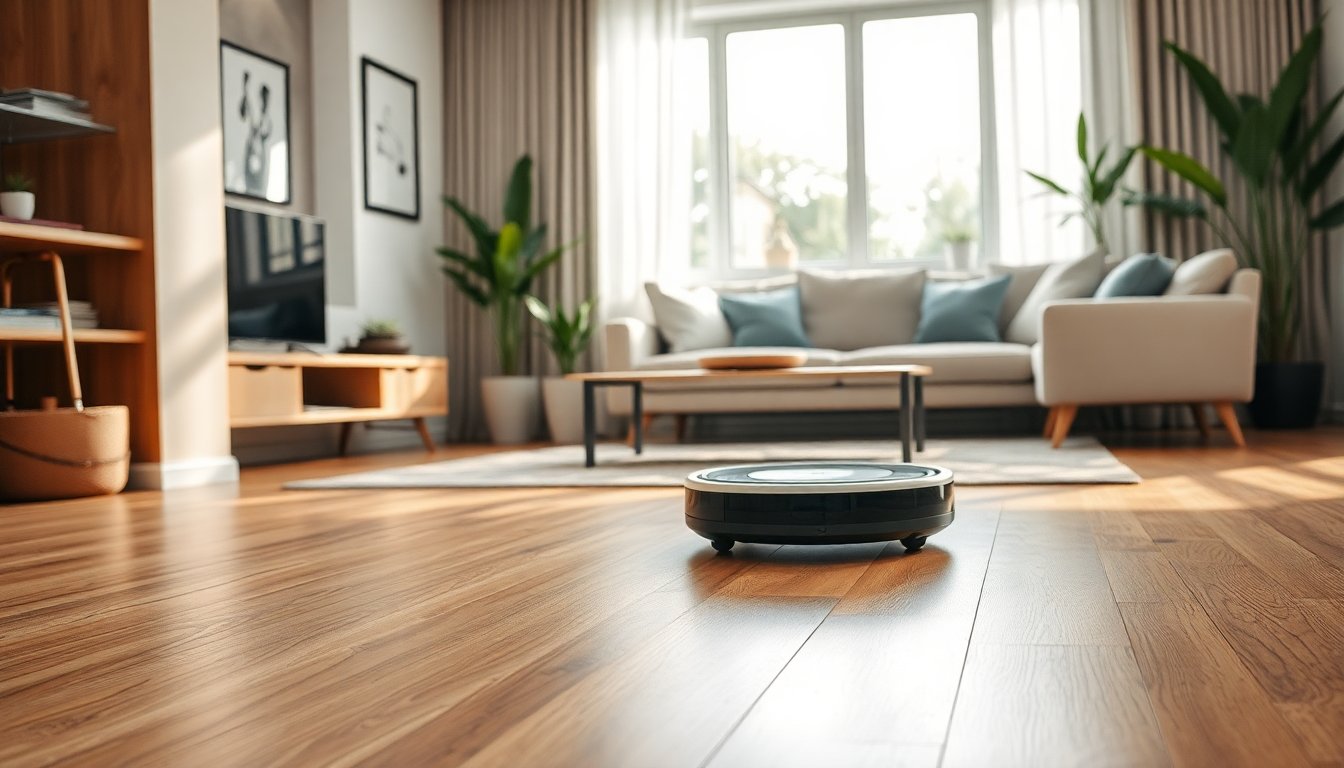Table of Contents
Shifting Dynamics in the Robot Vacuum Cleaner Industry
The robot vacuum cleaner industry has undergone significant changes in recent years. Chinese companies have emerged as the dominant forces in this market. Once regarded as a hallmark of American innovation, the popularity of robot vacuums is now overshadowed by these agile brands.
This transformation traces back to 1990, when iRobot was founded by MIT scientists. They launched the Roomba, a product that has become synonymous with the robot vacuum category.
The competitive landscape in the robot vacuum market has shifted significantly. Chinese manufacturers now dominate the sector, capturing a substantial share of the market. A recent report by IDC reveals that the top five cleaning robot manufacturers are all based in China. These include Roborock, Ecovacs, Dreametech, Xiaomi, and Narwal Robotics. Collectively, these companies accounted for nearly 70% of global shipments in the robot vacuum sector by the second quarter of 2025. In contrast, iRobot has fallen to a distant sixth place.
The Growth of the Robot Vacuum Market
As the demand for automated cleaning solutions rises, the robot vacuum market has seen remarkable growth. Recent data indicates that global shipments of these devices increased by 33% year-on-year, totaling 15.35 million units shipped in the first half of 2025. This rapid expansion has intensified competition, particularly among American brands that previously dominated the market.
Factors Driving Chinese Dominance
How have Chinese brands managed to surpass their American rivals? Price is not the only factor, as the cost differences among major brands are minimal. For example, the Roomba Vacuum 2 was priced at $165 in mid-September, a competitive figure compared to many alternatives. Therefore, other influences must be considered.
Claire Zhao, a senior analyst at IDC China, attributes the success of Chinese brands to their substantial investments in marketing and research and development. In her recent report, she emphasized how these companies have leveraged e-commerce platforms to boost their visibility and sales in international markets. Furthermore, their commitment to rapid technological innovation has enhanced product quality and cultivated strong customer loyalty.
The Curious Case of Golden Thread Acupuncture
In a different context, the medical field is observing an unusual trend as patients increasingly seek unconventional treatments like golden thread acupuncture. This therapy, which involves the insertion of thin golden threads into the body, has gained significant traction in South Korea. X-ray images revealing patients with hundreds of these threads have prompted concern among medical professionals.
Patient Experiences and Outcomes
Consider the case of a 65-year-old woman diagnosed with osteoarthritis in her knee. After exhausting various conventional treatments without success, she resorted to golden thread acupuncture as a last option. Unfortunately, her condition deteriorated further. A follow-up X-ray revealed hardened tissue and numerous tiny gold threads embedded in her knee, raising serious concerns about the treatment’s efficacy.
Similarly, a 58-year-old woman suffering from rheumatoid arthritis in her wrists opted for golden thread acupuncture instead of adhering to her prescribed antirheumatic medications. This decision led to a significant worsening of her condition. Unlike traditional acupuncture, which temporarily inserts needles, this method involves leaving needles permanently within the body, posing potential complications for the patient.
Cybersecurity Disruptions in Aviation
Cyberattack Disrupts Major European Airports
A significant cyberattack on Collins Aerospace, a company responsible for check-in and boarding systems, has caused major disruptions at airports across Europe, including London’s Heathrow. The incident resulted in numerous flight cancellations and delays, creating chaos for travelers.
Collins Aerospace confirmed a cyber-related disruption that affected its software at various airports. Although the company implemented manual check-in processes, the incident underscored vulnerabilities within critical infrastructure.
As the world grapples with the complexities of modern technology, the balance between innovation and security remains critical. This applies not only to air travel but also extends to other sectors, such as household cleaning devices and alternative medical treatments, where safety must be prioritized alongside progress.


